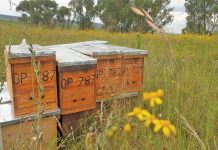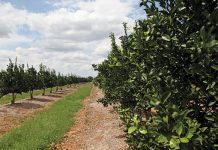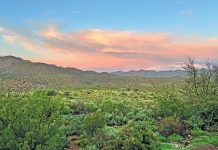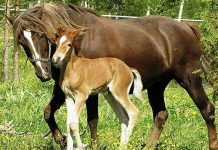The Sterkspruit district of the former Transkei is defined by poverty, yet Petrus Monoana returned there in the 1980s, to establish what is today, a booming brick business. As Mike Burgess learned, it was this business that later helped reinvent him as a self-made black commercial beef producer in the Zastron district.
I first heard about Petrus Monoana from a prominent commercial farmer who, while pointing out his impressive Brahman crossbred cows to me, commented on Petrus’s success as a beef producer as well as a self-made multimillionaire brick producer.Intrigued by this rags-to-riches story, I went to the Monoana Brick Farm in the Ssterkspruit district of the former Transkei. Iit was a hive of activity, with trucks arriving and leaving a site of countless bricks, a heap of sand, an impressive collection of dusty machines and eager men shadowing wet bricks on conveyer belts. “What you see here is what got me my farms,” Petrus explains to me later in his site office.
Leaving home to return
“I grew up on farms in Zastron in the Free State and Sterkspruit in the former Transkei where all the Monoanas come from,” Petrus says. But like so many South Africans that have left their childhood homes for financial reasons, a time normally comes when the past tugs at them to return to what’s familiar.
The same has been true for Petrus who, as a teenager in 1972, made his way to the harsh environment of an asbestos mine near Kuruman, where he lied about his age to secure a job. He’s quick to admit, though, that leaving home was a vital process in gaining the knowledge and skills that would ensure success when he eventually returned home. By 1974, he began operating machinery after landing a job at a Postmasburg iron mine. By 1976, he was driving huge 65t trucks and thereafter he was promoted to general supervisor of all the machinery – knowledge that would stand him in good stead.
But in 1982, disaster struck when sanctions forced the closure of the mine and workers were left without jobs or an explanation. “Nobody told us why we just didn’t have jobs anymore,” Petrus recalls. He later found himself in Thaba’Nchu, determined to save R5 000 to start his own business in his hometown. But the salary as an interstate Bus Lines driver in Bloemfontein was a mere R55 a week and so he began to motivate his wife to start a small business of her own. “I said we should try to sell something, even if it’s apples, but whatever we can to save R5 000. I told her, if we can make that money, will never work for another man for the rest of my life. It took us three years.”
Petrus then bought a 2t Mazda truck for R4 700 in Zastron, an investment many thought to be foolish, but Petrus had a plan. He’d produce bricks and deliver the raw materials to his future site and the bricks to customers.
machine.
Although most of the equipment was second-hand, it was all he needed to boost his output and stimulate serious growth. “Things changed immediately,” he remembers with a smile.By 1987, a friend advised Petrus to loan money from a bank in Zastron, to ensure even more growth, but when he approached a certain elderly lady he was fobbed off. “I didn’t know anything. I didn’t know what security was except for the man that stood by the gate.
The lady just shouted at me that she can’t loan me money.” A year later, a young bank manager, Lombard, surprised him by visiting the Monoana Brick Farm. “By that time I had R180 000 at the bank. He said to me I must invest that money. It was a highly political time and there was talk that Mandela was about to come out of prison. I first thought this man wanted to go to Australia with my money, but he convinced me to invest R160 000 for 10 years. He said to me, this is security and explained to me and I understood.”
From that point on, the Monoana Brick Farm grew rapidly thanks to various investments, including the VB4/VB4X brick-making machine, a CAT 325D LME excavator and close on 20 trucks ranging from 8t to 25t for the transport of raw materials to, and bricks from, the Monoana Brick Farm.
Today Petrus’s bricks, together with plastering sand, rough sand, building sand, gravel and crushed stone are sold to 65 villages in the Sterkspruit and Herschel regions of the former Transkei and to neighbouring towns like Aliwal North, Lady Grey, Zastron and beyond.
Finding land and commercial agriculture
Having grown up in commercial and subsistence farming districts, Petrus had developed an interest in farming and therefore ran 12 cattle on communal ground while building his brick business in the 1980s – an experience that only fuelled his desire to own a commercial farm. “People put my cattle in their yard, and then demanded compensation from me, saying the cattle had eaten their food. They said I had lots of money. I decided I was going to buy a farm.”
But it was not only the desire to escape the limitations of rural subsistence agriculture that had motivated Petrus to acquire his own land, but also general social unrest. “There were taxi toyi-toyis at the time and they didn’t want to allow some people on board. They also wanted us to stop working and join in. I said no. Seeing all this unrest, I decided
I wanted a farm where I would go and live.”
One of the major goals of Petrus’s brick business became to generate enough money to buy a farm. Eventually, in 1998, he acquired the 1 000ha Weltevrede farm near the Lesotho border in the Zastron district and bought it lock, stock and barrel. Next was the 275ha Worsfontein farm in 2002, then the 500ha Jericho in 2003, where he now lives, and lastly, the 681ha Skuifkop farm, which he bought last year.
All the farms besides Jericho are part of a belt close to the Lesotho border that commercial farmers have found increasingly difficult to farm due to the crumbling of border security. “The commercial farmers are gone, but this has given us emerging farmers an opportunity. We probably number more than 20 now.”
But it’s on Jericho, along the tar road passing Zastron, that Petrus has realised another dream – that of building a brick home that doubles as headquarters from which he manages his brick business and the farms. Petrus admits that the acquisition of land has been a good investment in light of the increase in land prices since 1998. “I bought my first farm for R450/ha and my last for R2 500/ha,” he points out. Petrus was also in the fortunate position to pay cash for all his farms except his last one for which he took a loan of R600 000. He hopes to pay off this loan before the end of the year.
“You can make money from farming, but only if you’ve paid off your loan and own the land,” Petrus concludes.
For more information contact
Petrus Monoana on 082 976 8100. |fw








